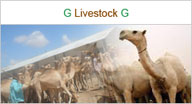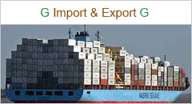Diaspora opportunities in Horn of Africa
Photo courtesy of Albany Associates
editorial@pathfinderbusiness.com
As the first part of its series looking at the impact of worldwide diasporas, PathfinderBuzz examines the impact that dispersed former Somalis have had on the country of Somalia and the semi-autonomous region of Somaliland.

The Somali civil war caused an exodus of people from the region. But returning stability coupled with increasing wealth from natural resources has brought some back.
Returning diaspora are bringing seed money for new ventures, skills and expertise picked up from other business climates, and an appetite to do things in a better way.
But is it enough? What is the best way to connect the diaspora back to its homeland? And would Somalia and Somaliland have been better off had more people stayed through the war and attempted to rebuild?
The Somali diaspora has demonstrated a growing business involvement with its country of origin. Whether this means returning home to set up an enterprise or providing funding or other forms of help from afar, more and more Somalis are connecting with Somalia and Somaliland.
For example Guul Group, a multi-sector Somali business, has partnered with Pontus Marine, a Somali fishing firm, to raise £3m ($5m) in funds for investing in the skills and capabilities necessary to expand commercial fishing in Somali waters and create a seafood export industry.
To raise these funds, they have turned to the extensive diaspora, says Mahamed Liban, chief executive officer (CEO) of the Guul Group. It shows how the diaspora can work with its home country to create wealth and opportunity for both the investor and the home community.
and the home community.
“Business is the way forward for Somaliland and the rest of Somalia, in order for it to be stable,” says Liban. “There are more people in Somalia so that means there are more opportunities there, but it is more stable up north in Somaliland.”
As opportunities emerge on the Horn of Africa, many of the diaspora are finding the going more difficult in their new adopted lands. Increased restrictions on visas and passports mean some cannot have family join them while others have no option but to return home. Meanwhile the continuing global economic slowdown coupled with further regulations oninternet money transfers are limiting the remittances they can send back.
The timing is right for many members of the diaspora to come back and invest in person, says Anna Bowden, associate director at One Earth Future Foundation, a non-profit organisation dedicated to eliminating conflict through economic opportunity.
Businesspeople are coming back, setting up businesses and either staying to run them or returning to their new countries to run them remotely. ”They’re not scared about the instability. They know there’s great opportunity on the ground,” she adds. “It’s one of the most exciting pieces of the puzzle.”
But diaspora returning home must be careful about where and what they invest in. Significant research is required, especially considering the speed of change. “People go in without knowing what’s out there. They see TV or hear friends and family have done it,” says Liban. “I know people who have taken their family with them before doing any research and ended up losing a lot of money.”
It also does not mean that all of Somalia or Somaliland’s problems have been solved and the area is now a shining beacons beckoning home prodigal sons after 10-20 years away. “There are many challenges,” says Liban. “It took me two years of going back and forth to get set up, it’s not something that happens overnight and any investor will require patience.”
Diaspora without money or the patience to invest directly are still getting involved in the opportunities that the country could provide. Growth and change is leading to greater demand for a variety of skills. “Everything from engineers to MBAs are needed,” says Bowden.
But despite the opportunities returning diaspora are creating in the region, it also must be acknowledge that their departure has hurt growth. Braindrain has hit the country hard, adds Liban. In many ways, it would have been better for many to stay, he says. “They’ve not made any difference coming, either for themselves or the people they leave behind.”
Remittance has also been something of a problem. “It’s become a major part of the Somali economy and personally I do not agree,” he says. “It’s created a dependency on diaspora and people abroad, an expectation of money at the end of the month. Instead they should have been encouraging people to set up businesses, be creative and create new business opportunities themselves.”
No matter how much quicker the pace may have been if more people had stayed at home, progress is being made throughout the Horn of Africa. As the port of Berbera announceslong-sought after investment, interest from the diaspora and other businesses will continue.
Next steps and more information
1. Investment in the Somaliland Port of Berbera















